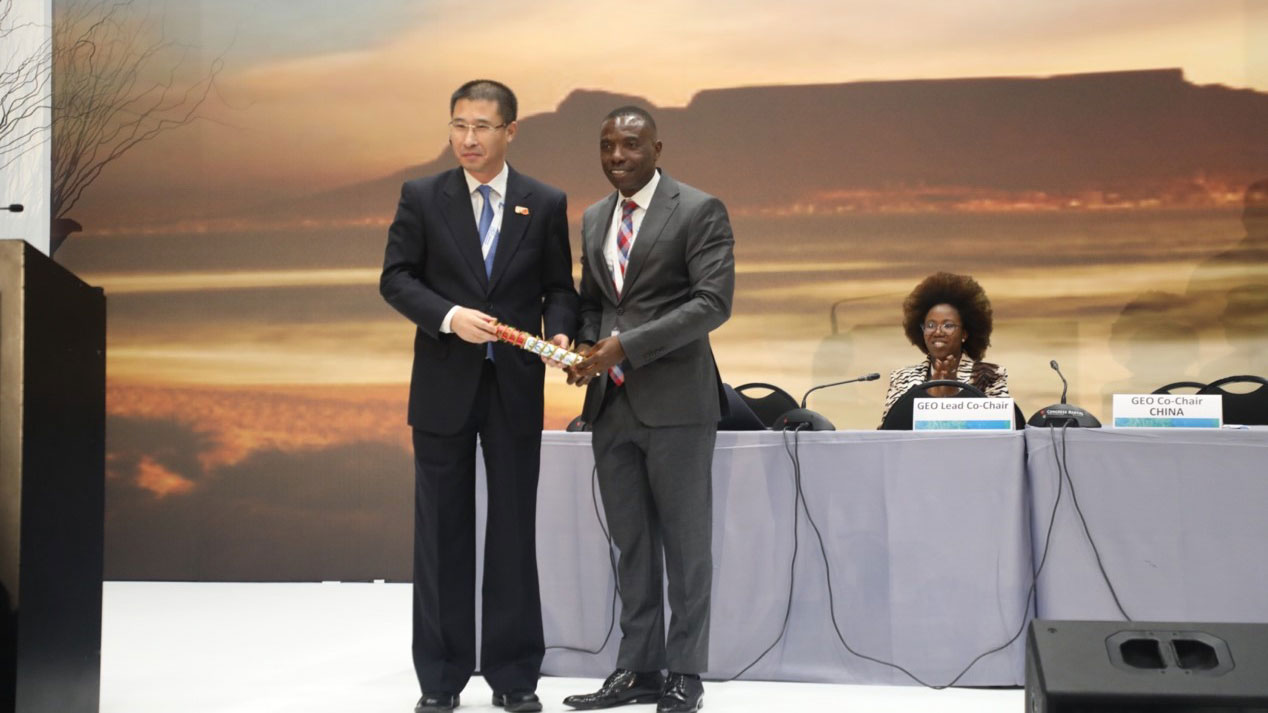China has taken over rotating chairmanship of Group on Earth Observations (GEO) since the GEO Week 2023 in Cape Town, South Africa earlier in November. Zhang Guangjun, as GEO's new co-chairman and China's vice minister of Science and Technology, will preside over the work until April 2025. Zhang called on all sectors of GEO to work together to create an open, inclusive, fair, just and non-discriminatory Earth observation development pattern and digital economic development ecosystem.
So, what does it mean for China to take over GEO chairmanship? Here are five things to know.
What is GEO?
The Group on Earth Observations (GEO) was established in 2005 and is currently the largest intergovernmental cooperation organization in the field of earth observation in the world. GEO aims to establish a comprehensive, coordinated and sustainable Global Earth Observation System of Systems (GEOSS) to obtain observation information of the atmosphere, ocean and land for sustainable development, disaster reduction, climate change and other priorities. GEO currently has 115 member countries, 152 participating organizations and 19 associated organizations.
What is GEO's rotating chairmanship?
GEO's membership is composed of "4+1" regions based on geographical location. Currently, the Executive Committee has 16 member seats, consisting of GEO Asia and Oceania region, African region, American region, European region and CIS nominated countries. The four major regions (except the CIS) each elect a co-chair. The current co-chairs are South Africa, the United States, China and the European Commission. Since 2017, GEO has changed to a rotating chairman working model, starting from European Commission, then the United States, South Africa and China.
What does China plan to do during the chairmanship?
According to the Ministry of Science and Technology, after China takes over the rotating chairmanship, it will build on the preliminary work of GEO, promote the writing of the implementation plan of GEO's third ten-year strategic plan and the implementation of the 2023-2025 work plan projects, strengthen the in-depth participation of developing countries, and bridge the gap between developed countries and developing countries, support decision-making and good governance with more comprehensive and credible earth intelligence, so that the international community and people around the world can better enjoy the benefits of earth observation.
What are the most concerning issues for GEO to address?
GEO's priority engagement areas include the United Nations 2030 Agenda for Sustainable Development, the Paris Agreement, and the Sendai Framework for Disaster Risk Reduction. GEO also works across eight societal benefit areas such as biodiversity sustainability, disaster resilience, energy management, food security, public health surveillance, infrastructure and transport management, sustainable urban development, as well as water resource management, where Earth observations play a key role in decision making.
What was achieved in GEO Week 2023?
During the conference week in Cape Town, the meeting adopted the Cape Town Ministerial Declaration, clarifying the common challenges facing the world, emphasizing the international community's ardent expectations for GEO, and making important commitments on behalf of GEO to further promote equitable participation by multiple parties, improve earth observation knowledge services, and ensure that GEO services benefit all walks of life.


